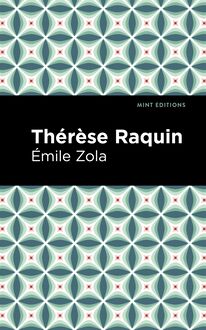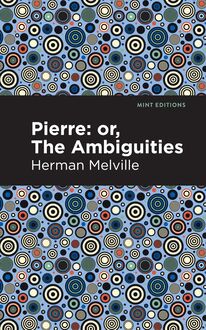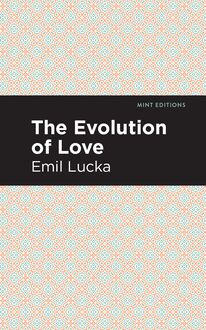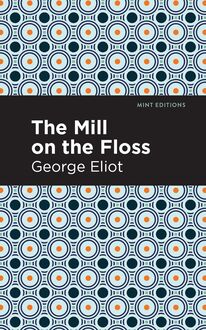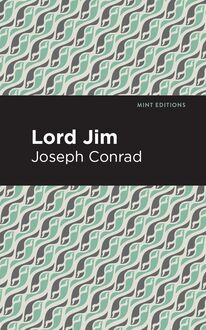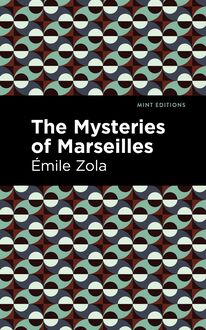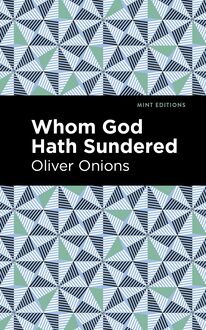-
 Univers
Univers
-
 Ebooks
Ebooks
-
 Livres audio
Livres audio
-
 Presse
Presse
-
 Podcasts
Podcasts
-
 BD
BD
-
 Documents
Documents
-
- Cours
- Révisions
- Ressources pédagogiques
- Sciences de l’éducation
- Manuels scolaires
- Langues
- Travaux de classe
- Annales de BEP
- Etudes supérieures
- Maternelle et primaire
- Fiches de lecture
- Orientation scolaire
- Méthodologie
- Corrigés de devoir
- Annales d’examens et concours
- Annales du bac
- Annales du brevet
- Rapports de stage
La lecture à portée de main
Vous pourrez modifier la taille du texte de cet ouvrage
Découvre YouScribe en t'inscrivant gratuitement
Je m'inscrisDécouvre YouScribe en t'inscrivant gratuitement
Je m'inscrisEn savoir plus
Vous pourrez modifier la taille du texte de cet ouvrage
En savoir plus

Description
“Love is a theme which at all times and in all countries has been of primary interest to men and women, and therefore this book, which throws an illuminating ray of light in many a dark place still wrapped in mystery and silence, not only impresses the psychologist, but also fascinates the general reader with its wealth of interesting detail and charm of expression.”-Ellie Schleussner
In The Evolution of Love (1922) the Austrian Poet-Philosopher Emil Lucka reveals his conception of the development of love and sex. In his revolutionary presentation of ideas, the author blends history, psychology, and philosophy to speculate that love is not a fundamental predisposition, but evolved through historical changes.
There are three distinct stages of the development of love that Lucka explores in this important work; Metaphysical Eroticism, the first, is the exploration of emotional climaxes and the sexual instinct. Moving from prehistoric man through the ideals of Greek love, and to the spread of Christianity, he lays his foundation through the lens of history. The second stage is Love, which he again demonstrates its development through history, specifically the birth of European civilization. The third stage is the unity of sexual impulse and love, the evolution of the spiritual love of man for woman based on personality. Finally, Lucka delves into erotic aberrations, exploring perversities of sex and love through the progress of history. In Lucka’s conclusion, he looks at the realm of the spirit in the context of Ernst Heackel’s biogenetic law.
With an eye-catching new cover, and professionally typeset manuscript, this edition of The Evolution of Love is both modern and readable.
Sujets
Informations
| Publié par | Mint Editions |
| Date de parution | 17 novembre 2020 |
| Nombre de lectures | 0 |
| EAN13 | 9781513266961 |
| Langue | English |
| Poids de l'ouvrage | 3 Mo |
Informations légales : prix de location à la page 0,0500€. Cette information est donnée uniquement à titre indicatif conformément à la législation en vigueur.
Extrait
The Evolution of Love
Emil Lucka
The Evolution of Love was first published in 1922.
This edition published by Mint Editions 2020.
ISBN 9781513266527 | E-ISBN 9781513266961
Published by Mint Editions®
minteditionbooks .com
Translation by: Ellie Schleussner
Publishing Director: Jennifer Newens
Project Manager: Gabrielle Maudiere
Design & Production: Rachel Lopez Metzger
Typesetting: Westchester Publishing Services
C ONTENTS T RANSLATOR’S I NTRODUCTION F IRST S TAGE: T HE S EXUAL I NSTINCT S ECOND S TAGE: L OVE I. T HE B IRTH OF E UROPE II. T HE D EIFICATION OF W OMAN ( T HE F IRST F ORM OF M ETAPHYSICAL E ROTICISM) ( a ) The Love of the Troubadours ( b ) The Queen of Heaven ( c ) Dante and Goethe ( d ) Michelangelo III. P ERVERSIONS OF M ETAPHYSICAL E ROTICISM ( a ) The Brides of Christ ( b ) Sexual Mystics T HIRD S TAGE: T HE U NITY OF S EXUAL I MPULSE AND L OVE I. T HE L ONGING FOR THE S YNTHESIS II. T HE L OVE- D EATH ( T HE S ECOND F ORM OF M ETAPHYSICAL E ROTICISM) III. T HE C ONFLICT B ETWEEN S EXUALITY AND L OVE.— T HE S EEKER OF L OVE AND T HE S LAVE OF L OVE IV. T HE R EVENGE OF S EXUALITY.— T HE D EMONIACAL AND THE O BSCENE C ONCLUSION: T HE P SYCHOGENETIC L AW.— T HE I NDIVIDUAL AS AN E PITOME OF THE H UMAN R ACE
T RANSLATOR’S I NTRODUCTION
S ince the triumphant days of the Mechanists some twenty-five years ago, the wedge of Pragmatism—a useful tool to be used and discarded—has been driven between materialism and idealism, and it appears that the whole tendency of philosophy is now in the latter direction. Even in England the influence of Bergson has led modern thought away from the pure materialism of the monists, and it seems probable that Benedetto Croce’s Philosophy of the Spirit will carry the movement a step nearer towards the idealistic concept of reality. And among the latest signs of the new tendency must be counted the brilliant work of Emil Lucka, the young Austrian “poet-philosopher,” whose conception of the development of love must rank with the most daring speculations in recent psychology.
In the great reaction of the last century, love, that most cogent motive of human thought and action, fell from its high estate and came to be regarded as an instinct not differing in any essential from hunger and thirst, and existing, like them, from the beginning, eternal and immutable, manifesting itself with equal force in the heart of man and woman, and impelling them towards each other. But Emil Lucka, in his remarkable new book, The Three Stages of Love (which was recently published in Berlin, and has already created a sensation in literary circles abroad), leads us on to speculative heights from which we may look back upon the whole theory of evolution not as a bar but as a bridge. “My book is intended as a monograph of the emotional life of the human race,” he says in the preface, and “I am prepared to meet with rejection rather than with approval.” There has been abundance of criticism and controversy, but Lucka has stated his case and drawn his conclusions with such admirable precision and logic, that his work has aroused admiration and appreciation even in the ranks of his opponents.
Love is a theme which at all times and in all countries has been of primary interest to men and women, and therefore this book, which throws an illuminating ray of light in many a dark place still wrapped in mystery and silence, not only impresses the psychologist, but also fascinates the general reader with its wealth of interesting detail and charm of expression.
The three vitally important points which the author develops are as follows:—
Love is not a primary instinct, but has been gradually evolved in historical time.
Ernst Haeckel’s biogenetic law is expanded in a psychogenetic law.
Only man’s emotions have undergone evolution, and therefore have a history, while those of woman have experienced no change.
Lucka’s book will probably not please the advanced feminists, but the delicate, although perhaps involuntary homage to her sex which is implied in his theories ought to rouse a feeling of gratification in the heart of every right-feeling woman. The very limitations and restrictions which he lays upon her raise and glorify her. For while man has been the “Odysseus wandering through heaven and hell, passing from the bestial to the divine to return again and become human, woman has always been the same, unchangeable and without problems. That which he has set up to-day as his highest erotic ideal, the blending of sexual and spiritual love, has been her natural endowment from the beginning. Never perfect, he falls into error and sin where she cannot err, for her instinct is Nature herself, and she knows not the meaning of sin.”
Schopenhauer’s “instinct of philoprogenitiveness” has to-day become an article of faith with the learned and the unlearned. This sub-conscious instinct for the service of the species which, in love, is supposed to rise to consciousness, and whose purpose is the will to produce the best possible offspring, is conceded by scientists who reject not only Schopenhauer’s metaphysic, but metaphysic in general. Even Nietzsche, that arch-individualist, has proved by many of his pronouncements, and most strikingly by his well-known definition of marriage, that he has not escaped its fascinations. “Schopenhauer ignores all phenomena which are not in support of his myth,” says Lucka, who denies this instinct of philoprogenitiveness and would substitute for it a “pairing-instinct.” “The experience of others,” he argues, “not our own instinct, has taught us that children may , not necessarily must , be the result of the union of the sexes. Into the mediaeval ideal which reached its climax in metaphysical love, the idea of propagation did not enter. Moreover, the desire for children is frequently unaccompanied by any sexual desire, and therefore to manufacture an instinct of philoprogenitiveness is fantastic metaphysic, and is entirely opposed to intellectual reality. This was well understood in the long period of antiquity which strictly separated the sexual impulse and the desire for children.”
Lucka distinguishes three great stages in the evolution of love. In vivid and fascinating pictures he unfolds the erotic life of our primitive ancestors, basing his statements on accepted authorities. The sexual impulse in those remote days, unconscious of its nature and far-reaching consequences, was entirely undifferentiated from any other powerful instinct. Every woman of the tribe belonged to every male who happened to desire her. As is still the case with the aborigines of Central and Northern Australia, the phenomena of pregnancy and childbirth were attributed to witchcraft. 1 The concept of father had not yet been formed; the family congregated round the mother and saw in her its natural chief; gynecocracy was the prevailing form of government. In early historical and pre-classical times, promiscuity was systematised by religion in India and the countries round the Mediterranean and survived in the Temple Prostitution and the Mysteries. Man as yet felt himself only as a part of nature, and aspired to no more than a life in harmony with her laws. The worship of fertility and the endless renewal of life was the object of the orgiastic cults of Adonis and Astarte in the East, and Dionysus and Aphrodite in Greece; unbridled licentiousness and blind gratification of the senses their sacrament.
With the growth of civilisation and the development of personality there slowly crept into the minds of men a distaste for this irregular sexuality and a desire for a less chaotic state of things. This longing and the wish for legitimate heirs gradually overcame promiscuity and, in Greece, led to the establishment of the monogamous system. It must not be assumed, however, that the Greek ideal of marriage bore any resemblance to our modern conception. True, the wife occupied an honoured position as the guardian of hearth and children and was treated by her husband with affection and respect, but she was not free. Nor was her husband expected to be faithful to her. Marriage in no way restricted his liberty, but left him free to seek intellectual stimulation in the society of the hetaerae, and gratification of the senses in the company of his slaves. Love in our sense was unknown to the ancients, and although there is a modern note in the legends of the faithful Penelope, and the love which united Orpheus and Eurydice, yet, so Lucka tells us, these instances should be regarded rather as poetic divinations of a future stage of feeling than actual facts then within the scope of probability. Even Plato, in whom all wisdom and ante-Christian culture culminated, was still, in this respect, a citizen of the old world, for he, too, knew as yet nothing of the spiritual love of a man for a woman. To him the love of an individual was but a beginning, the road to the love of perfect beauty and the eternal ideas.
On the threshold of the second stage of the erotic life stands Christianity, which, in sharp contrast to antiquity and to the classical period, sought the centre and climax of life in the soul. The founder of the “religion of love” discovered the individual, and by so doing laid the foundation for that metaphysical love which found its most striking expression in the deification of woman and the cult of the Virgin Mary. How this change of mental attitude was brought about is worked out in a brilliant chapter, entitled “The Birth of Europe.” The revivifying influence of Christ’s preaching and personality was stifled after the first centuries by the rigid dogma and formalism which had altered his doctrine almost past recognition. The Church was building up its political structure and tolerated no rival. Art, literature, music, all the enthusiasm and profound thought of which the human mind is capable, were pressed into her service. Independent thought was heresy, a
-
 Univers
Univers
-
 Ebooks
Ebooks
-
 Livres audio
Livres audio
-
 Presse
Presse
-
 Podcasts
Podcasts
-
 BD
BD
-
 Documents
Documents
-
Jeunesse
-
Littérature
-
Ressources professionnelles
-
Santé et bien-être
-
Savoirs
-
Education
-
Loisirs et hobbies
-
Art, musique et cinéma
-
Actualité et débat de société
-
Jeunesse
-
Littérature
-
Ressources professionnelles
-
Santé et bien-être
-
Savoirs
-
Education
-
Loisirs et hobbies
-
Art, musique et cinéma
-
Actualité et débat de société
-
Actualités
-
Lifestyle
-
Presse jeunesse
-
Presse professionnelle
-
Pratique
-
Presse sportive
-
Presse internationale
-
Culture & Médias
-
Action et Aventures
-
Science-fiction et Fantasy
-
Société
-
Jeunesse
-
Littérature
-
Ressources professionnelles
-
Santé et bien-être
-
Savoirs
-
Education
-
Loisirs et hobbies
-
Art, musique et cinéma
-
Actualité et débat de société
- Cours
- Révisions
- Ressources pédagogiques
- Sciences de l’éducation
- Manuels scolaires
- Langues
- Travaux de classe
- Annales de BEP
- Etudes supérieures
- Maternelle et primaire
- Fiches de lecture
- Orientation scolaire
- Méthodologie
- Corrigés de devoir
- Annales d’examens et concours
- Annales du bac
- Annales du brevet
- Rapports de stage
